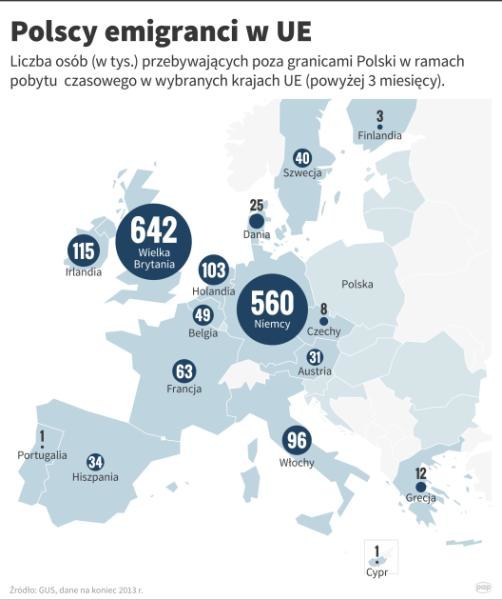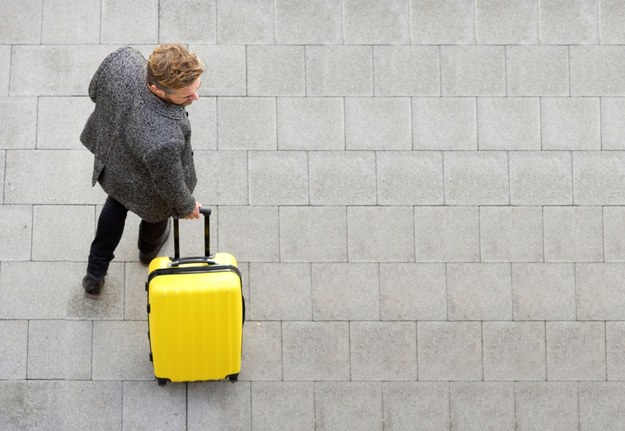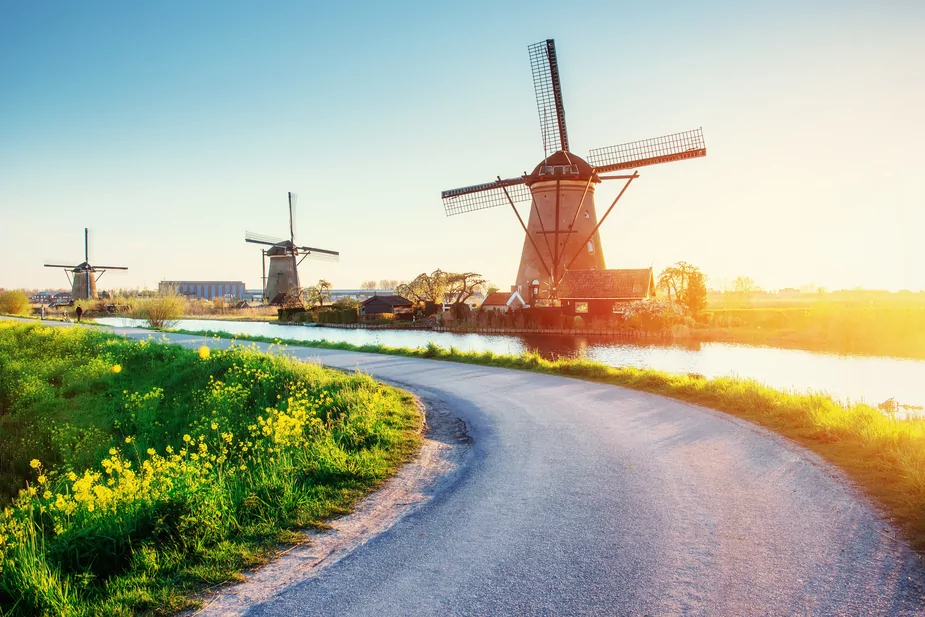|
|
Post by Bonobo on Sept 17, 2016 15:11:43 GMT 1
Experts estimate that about 2.4 million Poles are staying out of the country in 2016. Poland`s population is 38 million. Main countries which host Polish immigrants are Germany and the UK. Next is Ireland and Holland. This a bit outdated map contains figures which today should be a little higher.   |
|
|
|
Post by Bonobo on Jan 29, 2022 13:19:29 GMT 1
A Polish female relates here work seeking in the Netherlands www.onet.pl/turystyka/onetpodroze/uraz-do-storczykow-czyli-historia-mojej-wakacyjnej-pracy-w-holandii/nn0wx61,07640b54
Aversion to orchids, or the story of my summer job in the Netherlands
Orchids have divided Poles - some are in love with them and boast ideas on how to care for them on forums, others do not understand the phenomenon at all. I am somewhere in between, because every time I see these flowers, like a boomerang, the memories of my summer work in the Netherlands in 2015 and the prospect of a huge hall full of colorful orchids come back.
Karolina Walczowska
20.8 thous.
January 22, 2022, 20:33
You can read this text in 6 minutes
I don't like orchids because ... I worked on them in the NetherlandsI don't like orchids because ... I worked on them in the Netherlands - Karolina Walczowska / Onet
An interesting job opportunity for a student is a seasonal trip to work abroad. Together with my brother and boyfriend, we left for the Netherlands
The agency agency helped us arrange the work and all formalities. However, this had disadvantages as they did not guarantee the number of working hours and deducted large amounts of money for housing and insurance
Working in the big hall was exhausting. The hardest part was the pace
The stories of Poles were different. Some came for a while to postpone, others wanted to try their hand at the agency and then start working without the help of an intermediary. There were also men and women who supported partners and children in Poland
Have I Learned to Grow Orchids? No. I worked in the flower packing department
At the beginning of my studies, I spent my holidays working abroad. Thanks to the kindness and knowledge of my ex-boyfriend's dad, right after graduation we went to Germany to work for the so-called dishwasher, and in the next season we decided to look for income in the Netherlands. In 2015, we went to a popular employment agency , where we were offered a vacancy in a company dealing in the cultivation and distribution of orchids on a European scale. We were to get the exact list of duties on the spot. The issue of organizing travel, accommodation, translation of documents and formalities remained with the intermediary.
I myself had no idea about flowers, let alone caring for them . We had cherry trees in the garden, which my father always took care of whitewashing in the spring. There were hardly any plants in the house, and if someone donated an orchid for the name day, none of the household members knew how to take care of it and, in fact, did not really feel like it . Grandma "cultivated" ferns with great success, but she was far from being a passion.
"What am I going to do there? How will I manage? Well, okay, maybe I can break with English, or maybe I can handle German? It's actually a neighbor, so why not ... On the other hand, the Netherlands is a country famous for tulips, canals , bicycle, life can be fun there "
- I was torn by doubts. After all, my brother and I got on the bus and we headed off. My partner at the time had been there for several days.
On the way to the Netherlands (Illustrative photo)On the way to The Netherlands (Illustrative photo) - Standret / Shutterstock
READ ALSO: Amsterdam's famous neighborhood is about to be relocated. The city will lose its atmosphere?
On the way to the new world
Already during the trip by bus to a country famous for legal marijuana and prostitution, I had the opportunity to meet Polish labor migrants who made their journey more pleasant by drinking vodka with juice or cola. "Everyone takes it differently," I told myself, keeping my nerves in check and refraining from commenting on their behavior. I decided to ask them about the Netherlands itself, the possibilities and their experiences . As I found out, they were working as warehouse keepers and forklift operators. They returned to Poland, where they had left their families, every few months.
The driver brought us, exhausted in the morning, to the address indicated, i.e. to the house where we were to live for the next few weeks. It may not have been large, but it was spacious. On the Internet, I read earlier that you can even find caravans, and here we had a large kitchen and three bathrooms. It was comfortable, although at its peak moments, even a dozen or so people were accommodated in five rooms.
SEE ALSO: Poles returning from emigration in Norway? "The longing for my family won"
Work through an intermediary. Is it worth it?
In 2015, that is exactly the year of our departure, Michał Piasecki described on Onet patterns of fraudulent employment agencies. Among the irregularities of "Dutch exploitation" there are tricks in contracts, the obligation to pay for a company flat, even if you do not live in it, penalties for breaking the regulations, or lack of insurance.
READ MORE: This is how they deceive Poles leaving for the Netherlands
Fortunately, we didn't have such problems, but I can honestly say that working through an agency has advantages and disadvantages. Its absolute advantage is that its representatives will offer us a job in line with our expectations and experience, but also fully legal. In addition, they will take care of most of the formalities or help to complete them. People who do not feel confident in a foreign language have concerns about the law and rules in a given country, with the help of an agency they will cope with all the challenges.
The driver came to our accommodation and took us to the agency's office, where we filled out all the documents together with other compatriots. Unfortunately, it was not until the next day that we went to a special office to obtain a local Pesel number, which was to enable us to work in the Netherlands. We "lost" the second day of going to work.
Nevertheless, the agency made our procedures easier. We didn't have to look for a flat or a job. We didn't care about any documents. Unfortunately, they didn't quite leave us with the choice of a house or a person with whom to share a room. Comparing the wages and salaries in Germany and apartment fees, and knowing the experience of people who were employed directly in our company, we also realized that ... we were overpaying . At that time , we paid well over 300 euros a month for a place in a room . It was not the center of Amsterdam, and a village located approx. 20 km from Rotterdam, so the prices should be much lower, as our colleagues who rented the apartment on their own convinced us.
I think that today, when I am older, I feel more confident in English, I would probably try to find a job and a flat on my own - like a year later, when I went on an Erasmus + internship in Rimini. However, I understand that many people feel safer when a professional organization takes care of all the paperwork. However, the agency is worth checking, because unfortunately not all of them are guided by ethics.
Orchids in a greenhouse (Illustrative photo)Orchids in the Greenhouse (Illustrative Photo) by Martin Bergsma / Shutterstock
At the tape? I admire
We lived just a few hundred meters from the company which was a huge advantage as the working day started at 6am. The journey on a bicycle borrowed from the company took only a few minutes, while many employees traveled by cars (provided by the company, however, for an appropriate fee). The shift usually lasted until 15, with two (unpaid) breaks per shift. The number of hours basically depended on the work, and in fact, how long we would be in the plant, we found out ... on the same day.
Trying to recall my first hours at work, I see a landscape of a gigantic greenhouse and colorful, already grown orchids.
We worked in teams of a dozen or so people. Apart from Poles, there were Slovaks and Portuguese. Several Dutch women also worked on the tape.
- Sprechen Sie deutch? (Do you speak German?) I asked. A woman of about 40 made a sour face and said that of course not and with her body posture made it clear that she did not know what I was imagining. A few days later, I told a Polish woman who had lived there for years about this situation. She started laughing at me and recalled a few facts of the difficult Dutch-German history ... I quickly drew conclusions and spoke only in English.
I was not afraid of working on my legs for a few, sometimes several hours with the tape, but it could be tiring. The most difficult thing was the pace after all. I did different things, but usually the same things all day long. Mainly it was sticking to the ground in the pot special cards with the name of the manufacturer, sticking special markings on the foil and throwing orchids into the foil. The work was not difficult, the managers explained the procedures clearly, but I was not doing very well and I had a lot of complexes about the rest. I admire their strength to this day.
The owners liked to increase the pace. Sometimes the Dutch stood with us and, under the pretext of helping, checked how we were doing our work. It was a very stressful challenge.
"Just a few more days, you can hold it. Then you will go on a great vacation to Italy."
- I said under my breath when I knew that the academic year was fast approaching, and I was tired of work and I missed my family and friends.
Longing for home and partying forever
Me, my brother and my ex-boyfriend greatly underestimated the average age. Most people were in their early 30s or early 30s. Their stories were different. Some came for a while to put aside and start something of their own in Poland, others wanted to try their hand at the agency, and then start working without the help of an intermediary . There were also men and women who kept partners and children in Poland.
It was very rare to go to work at the weekend. We used our free time to discover the attractions of the country of tulips and windmills. We managed to visit Rotterdam, Amsterdam and even went to the beach once!
We went on trips with a small team from our home . However, it was not very popular. Many Poles were neither interested in visiting the Netherlands nor wanted to spend their money. Most of the weekend evenings were alcohol-drenched parties. Even though we ourselves had a lot of fun playing darts and making barbecues, there were unpleasant situations and uncomfortable offers from married men whose families waited for a husband and father in Poland ...
Fortunately, I met many wonderful people during these three months. For a long time after my return, I kept in touch with one of the tenants, Basia, who, expecting nothing in return, always took us for grocery shopping in a larger store (having a car was a luxury) and Portuguese girls, who showed me a lot of warmth during my demanding days at work.
Why didn't I come back with a suitcase of money
Compared to working in Germany (a year earlier), our hourly wage was lower, because in the Netherlands it was the so-called "centuries" - the youngest earned ... the least. As a result, workers of different ages who performed the same job received a different salary.
There were also days of downtime in our company. Every day, at the end of the day, a list appeared with the names of who was to come to work the next day and to which department they should report. For several weeks in a row, I worked only 3-4 days a week. Somehow during the half of my stay I was stuck at home without occupation for a few days. After calling the agency, they managed to find another job and for some time I went to the fruit and vegetable sorting plant.
ADVERTISEMENT
Our employer sent wages to the agency which, as I mentioned earlier, made deductions for housing and insurance. I did not fully understand the conversion of hourly wages, especially in such a confused workflow, and I did not watch over it. Moreover, living in the Netherlands costs money. Even though we got bags of food from Poland from time to time from our parents, a large part of our salary went to produce.
The money that was left was used for clothes and things needed for studies and of course ... travel! It is never worth regretting. And the orchids? I smile in my memories when I see them, but ... I never buy them myself. Honestly, I still have no idea how to handle them.
WE RECOMMEND: Add a few drops to the water and water the orchids with it. They will grow like crazy
***
I reserve that the story described above is a memory from over six years ago. Working through an intermediary agency and the life of Poles living in the Netherlands may look completely different now. However, I would like to read and publish your stories. I am waiting for messages: karolina.walczowska@redakcjaonet.pl |
|






